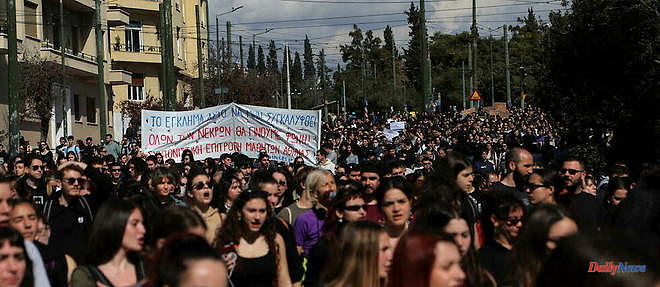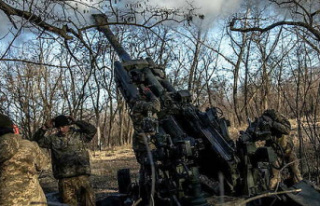Strikes and rallies across Greece: More than 50,000 people, police say, showed their anger in Greece on Wednesday, a week after the train disaster that killed 57 people and sparked outrage in the crippled country by a massive strike. In Athens, at least 30,000 people gathered in the city center, a police spokeswoman told AFP, and 15,000 protesters marched in Thessaloniki, the country's second largest city, according to local police.
At the end of the demonstration, Molotov cocktails and stones were thrown by a group of demonstrators outside the Greek Parliament in central Athens on Wednesday and the police responded by firing tear gas, journalists from the AFP.
Already on Sunday, in Athens and Thessaloniki, the country's second city, violent clashes pitted police and demonstrators on the sidelines of a gathering of 12,000 people. In the processions that have been marching for a week, a slogan has spread: "Call me when you arrive", in reference to the message sent by a mother to her child killed in this accident. Many victims were young people and students. In recent days, the images of collapsed parents burying their children, often broadcast live by television channels, have helped to upset the country a little more.
The indignation does not weaken a week after the collision between a train connecting Athens to Thessaloniki with nearly 350 passengers on board and a convoy of goods. Without any alert being triggered, the two trains traveled for several kilometers on the same track before colliding head-on on February 28 at around 11:30 p.m., in Tempé, near the town of Larissa, 350 km north of the capital.
In what authorities have called a "national tragedy", Greeks have been holding their leaders to account, foremost among them conservative Prime Minister Kyriakos Mitsotakis. Because the day after the collision, serious shortcomings in the security system as well as the dilapidated state-owned rail network were pointed out.
The head of government, who faces general elections in the spring, is crushed to have a few hours after the disaster assured that it was "a tragic human error". However, the railway unions in particular recalled with anger that they had sounded the alarm on the serious technical failures on this line long before the tragedy, without having been heard.
The Larissa station master, who admitted responsibility for the accident, was remanded in custody. But some accuse the authorities of wanting to blame a man who had very little experience. "It's easy to blame the station master," protested primary school teacher Mariana Chronopoulou at Sunday's protest.
"We are very angry with this government because we also see the state the public sector is left in," she said. Contrite, the Prime Minister asked forgiveness on Sunday from the families of the victims, a mea culpa considered very late for many. He also asked for help from the European Union, which is to send experts from the European Agency for Railways (ERA) to Athens this week.
The anger is also directed at the railway company Hellenic Train. To cries of "murderers", protesters expressed their anger on Friday outside the company's headquarters and inscribed the word on the building in Athens. The operator Hellenic Train, in charge of passenger and freight traffic, responded to the accusations by recalling that the responsibility for the maintenance of the network fell to the Greek public company OSE. Many Greeks are also expressing their bitterness at what they see as a decline in public services since the austerity plans imposed by Greece's creditors to pull the country out of the doldrums. Public health, education, many sectors have suffered blows.












